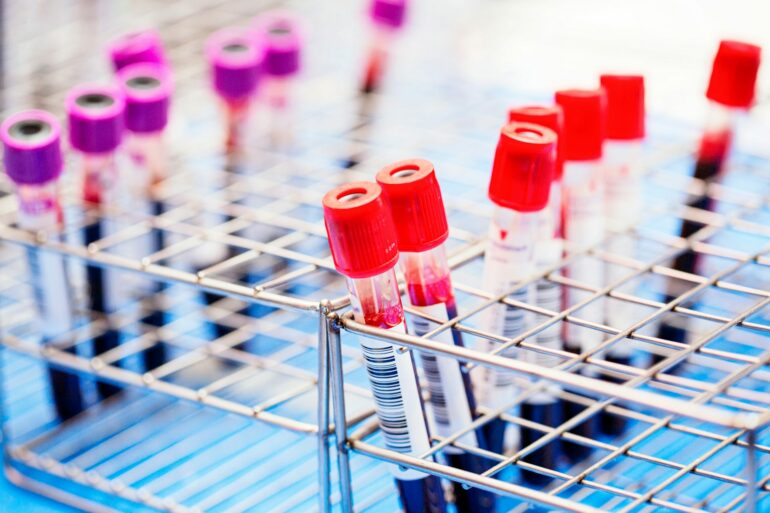Doctors may someday be able to use bodily fluids to noninvasively detect breast cancer in patients earlier than is possible now.
Breast cancer is the most commonly diagnosed cancer among women in the U.S. and is currently one of the leading causes of cancer deaths. Earlier diagnosis and treatment lead to better prognoses for breast cancer patients. But mammograms have proved to be less effective for those under age 40, as their breast tissue is denser and screening and biopsies can be unpleasant to endure.
In breast milk and blood serum, researchers, including those in my lab group, have identified proteins that are involved in tumor development. Eventually, biochemists like my colleagues and I hope we can use these cancer-related proteins to create a biomarker panel that physicians can use to detect breast cancer earlier, therefore aiding in diagnosis and treatment.
Proteins as biomarkers for what’s happening
Researchers can analyze the proteins present in a variety of tissues, from biopsies of tumors to biological fluids including blood, saliva, urine, tears or breast milk. This technique is an example of studying a sample’s proteome – all the proteins in a particular cell, organism or species. The field is called proteomics.
Proteomics can be a powerful tool when researchers compare the proteomes of individuals from different groups, such as in blood from healthy people versus those with breast cancer. This kind of case-control comparison can identify a single protein or a group of proteins and their variants that are specific to one condition.
That’s what my colleagues and I are looking for: proteins that are present only in the samples from people who have breast cancer. Scientists call them biomarkers because they signal that a patient has a particular condition. Once our candidates are verified by large-scale clinical trials that include many patients, we hope that particular proteins can then be used to assess someone’s future risk of developing the disease.
Doctors can currently use biomarkers for breast cancer to gauge a patient’s response to treatment. For instance, the molecules cancer antigen 15-3 (CA 15-3) and carcinoemybronic antigen (CEA) are elevated in breast cancer patients, so monitoring their levels can let physicians know whether treatment is working.
Inherited variants of the BRCA1/2 genes can increase the likelihood of developing cancer; they can act as biomarkers in screening for cancer risk.
None of these biomarkers aid in diagnosis of breast cancer, though.
Researchers prefer proteins as cancer biomarkers over the genetic materials DNA and RNA because proteins provide a snapshot of what is happening in a patient’s body at the time a sample is collected. DNA and RNA can tell you whether a certain gene is turned on or off, but not the active form of the protein it codes for or the relative abundance of proteins. Protein analysis can also reveal changes the protein has undergone and



